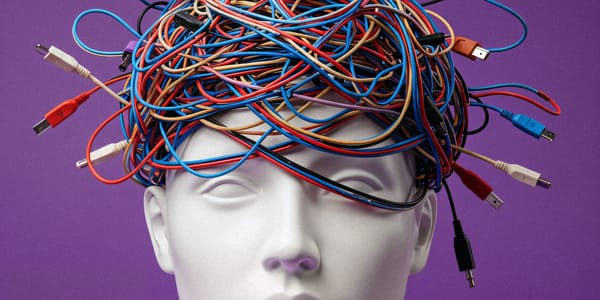AI and Mental Health: Navigating the Digital Revolution in Canadian Healthcare
Explore how artificial intelligence is reshaping mental health care in Canada, from innovative treatments to ethical concerns, and what this means for patients and practitioners.

The intersection of artificial intelligence and mental health represents one of the most promising yet complex frontiers in modern healthcare. As Canada continues to grapple with a mental health crisis that has touched nearly every community from Vancouver Island to the Maritimes, the emergence of AI-powered solutions offers both unprecedented opportunities and legitimate concerns that deserve careful consideration.
The statistics paint a sobering picture of mental health in Canada. According to the Canadian Mental Health Association, one in five Canadians experiences a mental health problem or illness in any given year. The COVID-19 pandemic has only intensified these challenges, with Statistics Canada reporting a significant increase in anxiety and depression symptoms across all provinces and territories. Against this backdrop, artificial intelligence has emerged as a potential game-changer, promising to democratize access to mental health support, enhance treatment effectiveness, and bridge the gap between the need for services and their availability.
Yet as we stand at this technological crossroads, we must approach AI in mental health with both optimism and caution. The technology that could revolutionize how we understand and treat mental illness also raises profound questions about privacy, human connection, and the fundamental nature of therapeutic relationships. For Canadians seeking mental health support and the professionals who serve them, understanding this landscape has never been more critical.
The Current State of Mental Health Care in Canada
Canada's mental health system faces significant challenges that have persisted for decades. The Canadian Institute for Health Information reports that while mental health problems affect people of all ages, many Canadians struggle to access timely, appropriate care. Wait times for mental health services can stretch from weeks to months, particularly in rural and remote communities where specialist services are scarce.
The traditional model of mental health care relies heavily on one-to-one therapeutic relationships, which, while effective, creates natural bottlenecks in a system already stretched thin. With approximately 4,000 registered psychologists and 15,000 registered social workers across Canada serving a population of nearly 40 million, the mathematics of access present a stark reality. Many Canadians find themselves on lengthy waiting lists, seeking support through employee assistance programs, or turning to online resources of varying quality and reliability.
Provincial healthcare systems across Canada have recognized these challenges and are increasingly exploring innovative solutions. British Columbia's virtual mental health platform, Alberta's digital therapy initiatives, and Ontario's expanded telehealth services all represent attempts to leverage technology to improve access and outcomes. These efforts have laid important groundwork for understanding how digital tools can complement traditional therapeutic approaches.
The geographic realities of Canada compound these access challenges. A resident of Iqaluit faces vastly different barriers to mental health care than someone living in downtown Toronto. Rural communities often lack specialized services entirely, forcing individuals to travel hundreds of kilometres for care or go without. Indigenous communities face additional barriers rooted in historical trauma and systemic inequities that require culturally sensitive, community-based approaches.
This context makes the potential of AI particularly compelling for Canada. Technology that can provide 24-hour support, bridge geographic divides, and offer personalized interventions at scale could address some of our most persistent systemic challenges. However, the same factors that make AI appealing also highlight the importance of implementing these technologies thoughtfully and equitably.
Understanding AI in Mental Health
Artificial intelligence in mental health encompasses a broad spectrum of applications, from chatbots that provide basic support and psychoeducation to sophisticated algorithms that can analyze speech patterns, facial expressions, and physiological data to detect early signs of mental health concerns. These technologies operate on different principles and serve different functions within the broader ecosystem of mental health care.
Machine learning algorithms can process vast amounts of data to identify patterns and correlations that might escape human observation. In mental health applications, this might involve analyzing electronic health records to predict which patients are at highest risk for depression relapse, or examining social media posts to identify individuals who might benefit from early intervention. Natural language processing allows AI systems to understand and respond to human communication in increasingly sophisticated ways, enabling chatbots that can engage in basic therapeutic conversations or help users track mood patterns over time.
Computer vision technology can analyze facial expressions, body language, and other visual cues that may indicate emotional states or changes in mental health status. Some applications use smartphone cameras to detect subtle changes in facial expressions that might signal the onset of a depressive episode, while others analyze gait patterns or sleep movements captured by wearable devices.
The sophistication of these technologies varies considerably. Simple rule-based chatbots follow predetermined conversation trees, while more advanced systems use machine learning to adapt their responses based on user interactions and outcomes. Some AI applications focus on administrative tasks, helping to streamline intake processes or match patients with appropriate providers, while others engage directly in therapeutic interventions.
Understanding these distinctions is crucial for both mental health professionals and the public. Not all AI applications in mental health are created equal, and their appropriate use depends heavily on the specific context, user needs, and available human oversight. The most promising applications often combine AI capabilities with human expertise, using technology to enhance rather than replace the therapeutic relationship.
Promising Applications of AI in Mental Health
The potential applications of AI in mental health care span the entire continuum of services, from prevention and early identification through treatment and long-term support. Each application offers unique benefits and considerations that are particularly relevant in the Canadian context.
Screening and early detection represent one of the most promising areas for AI implementation. Machine learning algorithms can analyze patterns in speech, writing, social media activity, or physiological data to identify individuals who may be experiencing mental health challenges before they reach crisis points. For a country like Canada, where many people live far from specialized services, early detection tools could enable proactive intervention and support.
Several Canadian universities and research institutions are exploring these applications. Researchers at the University of Toronto have developed algorithms that can detect depression and anxiety from speech patterns, while teams at the University of British Columbia are investigating how AI can analyze social media content to identify individuals at risk for suicidal ideation. These tools could be particularly valuable in workplace settings, where employee assistance programs could use AI-powered screening to identify employees who might benefit from additional support.
Therapeutic chatbots and digital companions represent another significant application area. These AI-powered tools can provide 24-hour support, psychoeducation, and basic therapeutic interventions to users regardless of their location or the time of day. For Canadians living in remote communities or those unable to access traditional therapy due to cost, scheduling, or mobility barriers, these tools could provide valuable interim support.
The effectiveness of therapeutic chatbots varies significantly based on their design and intended use. Simple psychoeducational chatbots can help users learn about mental health conditions, develop coping strategies, and track symptoms over time. More sophisticated applications incorporate elements of cognitive behavioural therapy, mindfulness training, or other evidence-based interventions. While these tools cannot replace human therapists for complex cases, they can provide valuable support for mild to moderate mental health concerns or serve as adjuncts to traditional therapy.
Personalized treatment recommendations represent another promising application. AI algorithms can analyze patient characteristics, treatment history, genetic markers, and other factors to predict which interventions are most likely to be effective for specific individuals. This approach could help Canadian healthcare providers make more informed treatment decisions and reduce the trial-and-error process that often accompanies mental health treatment.
Crisis intervention and suicide prevention applications use AI to monitor various data sources for warning signs and alerts that might indicate imminent risk. These systems can analyze text messages, social media posts, search histories, or other digital footprints to identify individuals who may be contemplating self-harm. While such applications raise important privacy concerns, they also offer the potential to save lives by enabling rapid intervention during critical moments.
Therapeutic support during treatment represents another valuable application area. AI-powered apps can help patients practice therapeutic techniques between sessions, complete homework assignments, track mood and symptoms, and maintain engagement with their treatment plans. These tools can provide valuable data to therapists about patient progress and challenges while offering ongoing support that extends beyond traditional session boundaries.
Risks and Ethical Considerations
The integration of AI into mental health care brings significant risks and ethical challenges that require careful consideration, particularly within the Canadian healthcare context where universal access and patient rights are fundamental principles. These concerns span technical limitations, privacy issues, potential for bias, and the risk of dehumanizing care.
One of the most significant concerns involves data privacy and security. Mental health information is among the most sensitive personal data, and AI systems often require vast amounts of this information to function effectively. In Canada, provincial privacy legislation such as the Personal Health Information Protection Act in Ontario and the Personal Information Protection Act in British Columbia establish strict requirements for how health information can be collected, used, and disclosed. AI systems must comply with these regulations while also meeting federal privacy requirements under the Personal Information Protection and Electronic Documents Act.
The cross-border nature of many AI platforms creates additional privacy challenges. Many AI tools are developed and hosted by companies outside Canada, raising questions about data sovereignty and the application of foreign laws to Canadian health information. The recent emphasis on digital sovereignty in Canadian healthcare policy reflects growing awareness of these concerns and the need for domestic solutions or carefully structured international partnerships.
Algorithmic bias represents another critical concern. AI systems learn from historical data, which often reflects existing systemic biases and inequities. In mental health care, this could manifest in AI systems that provide different quality recommendations based on race, gender, socioeconomic status, or other protected characteristics. Given Canada's commitment to healthcare equity and reconciliation with Indigenous peoples, ensuring that AI systems do not perpetuate or amplify existing health disparities is paramount.
The risk of over-reliance on AI tools poses significant clinical concerns. While these systems can provide valuable support and insights, they cannot replace human judgment and the therapeutic relationship that lies at the heart of effective mental health treatment. There is a risk that resource-constrained healthcare systems might view AI as a way to reduce costs by replacing human providers, potentially compromising care quality and outcomes.
Informed consent becomes more complex in AI-enabled mental health care. Patients need to understand not only what information is being collected but how AI algorithms will use that information, what decisions they might influence, and what the limitations of these systems are. This requirement for transparency conflicts with the proprietary nature of many AI algorithms and the difficulty of explaining complex machine learning processes in accessible terms.
The potential for false positives and negatives in AI screening and diagnostic tools presents clinical and ethical challenges. A false positive might lead to unnecessary anxiety and intervention, while a false negative could result in missed opportunities for early intervention. The consequences of these errors can be particularly significant in mental health, where trust and therapeutic relationships are crucial for effective treatment.
Current Research and Development in Canada
Canada has emerged as a significant player in AI research and development, with particular strengths in healthcare applications. The Canadian government's investment in AI research through organizations like the Canadian Institute for Advanced Research and the Vector Institute has fostered innovation in mental health applications while maintaining focus on ethical development and implementation.
The University of Toronto's Vector Institute has been at the forefront of developing AI applications for mental health, including projects that use machine learning to predict treatment outcomes and identify patients at risk for adverse events. Their work on natural language processing has particular relevance for mental health applications, as it enables AI systems to better understand and respond to human communication about emotional experiences.
Researchers at McGill University have developed AI tools that can analyze brain imaging data to predict treatment response in depression, potentially helping clinicians choose the most effective interventions for individual patients. This work builds on Canada's strengths in neuroimaging research and could significantly improve treatment outcomes by reducing the trial-and-error approach often necessary in mental health treatment.
The University of British Columbia's research on social media analysis for mental health screening has attracted international attention for its potential to identify individuals at risk for suicide or self-harm. While this research raises important privacy considerations, it also demonstrates the potential for AI to enable early intervention in mental health crises.
Several Canadian companies have developed commercial applications that incorporate AI into mental health care. Mindbeacon, based in Toronto, offers AI-enhanced cognitive behavioural therapy programs that have been integrated into several provincial healthcare systems. Their approach combines human therapists with AI tools to provide scalable, evidence-based treatment that maintains the human element while leveraging technology for efficiency and accessibility.
The Canadian government has recognized both the potential and the risks of AI in healthcare through initiatives like the Digital Health Agency and investments in AI ethics research. The Pan-Canadian Artificial Intelligence Strategy includes specific provisions for healthcare applications and emphasizes the importance of developing AI systems that reflect Canadian values around universal healthcare access and patient rights.
Provincial governments have also begun exploring AI applications in mental health care. Ontario's ConnexOntario platform uses AI-enhanced matching algorithms to connect individuals with appropriate mental health services, while British Columbia has piloted AI-powered chatbots for mental health support in educational settings.
Research partnerships between Canadian institutions and international organizations have accelerated development while ensuring that Canadian perspectives and requirements remain central to the work. These collaborations have been particularly important for developing AI applications that work effectively in Canada's bilingual context and diverse cultural landscape.
Regulatory Landscape and Professional Standards
The regulatory environment for AI in mental health care in Canada is evolving rapidly as government agencies, professional colleges, and healthcare organizations work to establish appropriate oversight and standards. This regulatory landscape reflects the need to balance innovation with patient safety and professional accountability.
Health Canada has begun developing frameworks for regulating AI-enabled medical devices, including those used in mental health applications. The Medical Devices Regulations require that any AI system used for diagnostic or therapeutic purposes undergo rigorous safety and efficacy testing before approval for use in Canada. This process ensures that AI tools meet the same standards applied to other medical technologies while acknowledging the unique characteristics of AI systems.
Provincial regulatory colleges for psychologists, social workers, and other mental health professionals have begun issuing guidance on the use of AI tools in clinical practice. The College of Psychologists of Ontario, for example, has developed standards that require practitioners to understand the limitations of AI tools they use and to maintain appropriate oversight of AI-assisted interventions. Similar guidance has emerged from professional colleges across Canada, emphasizing the importance of maintaining professional judgment and therapeutic relationships even when using AI-enhanced tools.
The Canadian Psychological Association has established ethical guidelines for the use of technology in psychological practice that specifically address AI applications. These guidelines emphasize the importance of competence, informed consent, and maintaining the primacy of the therapeutic relationship while acknowledging the potential benefits of appropriately used AI tools.
Privacy regulations at both federal and provincial levels create important requirements for AI applications in mental health. The Personal Information Protection and Electronic Documents Act establishes baseline requirements for how personal information can be collected and used, while provincial health information legislation adds additional protections specific to health data. AI developers and healthcare providers must ensure compliance with all applicable privacy requirements, which often requires careful attention to data minimization, purpose limitation, and user consent.
Professional liability and malpractice considerations are evolving as AI becomes more common in mental health practice. Professional liability insurers are developing policies that address the use of AI tools, while professional colleges are establishing standards for appropriate use and oversight. These developments reflect recognition that AI tools, while valuable, do not eliminate the need for professional judgment and accountability.
The regulatory landscape continues to evolve as technology advances and experience with AI applications grows. Canadian regulators have generally taken a balanced approach that encourages innovation while maintaining strong protections for patient safety and privacy. This approach reflects Canadian values around healthcare delivery and positions the country well for responsible adoption of AI technologies.
The Human Element in AI-Enhanced Mental Health Care
Despite the impressive capabilities of modern AI systems, the human element remains central to effective mental health care. The therapeutic relationship, characterized by empathy, understanding, and genuine human connection, cannot be replicated by artificial intelligence. However, AI can enhance and support these human elements in meaningful ways when implemented thoughtfully.
The most successful AI applications in mental health recognize this reality and position technology as a complement to, rather than replacement for, human care. AI can handle routine tasks, provide 24-hour support between sessions, and offer insights that enhance clinical decision-making, but the core work of therapy requires human judgment, creativity, and emotional intelligence that current AI systems cannot match.
Mental health professionals across Canada are beginning to explore how AI tools can enhance their practice without compromising the therapeutic relationship. Some therapists use AI-powered apps to help clients practice skills between sessions, track mood patterns, or access psychoeducational resources. Others incorporate AI-generated insights about client progress or risk factors into their clinical formulations, using technology to inform but not replace their professional judgment.
The integration of AI into mental health care also requires new skills and competencies from healthcare providers. Professionals need to understand the capabilities and limitations of AI tools, maintain appropriate oversight of AI-assisted interventions, and help clients understand how technology fits into their overall treatment plan. This requirement has implications for professional training and continuing education programs across Canada.
Client preferences and comfort levels with technology vary significantly, and effective AI implementation must account for these differences. Some individuals embrace digital tools and find them helpful for managing their mental health, while others prefer traditional approaches or have concerns about privacy and data security. Mental health providers need to assess client preferences and tailor their use of AI tools accordingly.
The human element also extends to the development and implementation of AI systems themselves. The most effective mental health AI applications are developed with significant input from mental health professionals, clients, and communities. This collaborative approach helps ensure that technology serves human needs rather than driving care decisions based solely on algorithmic efficiency.
Cultural competence remains crucial in AI-enhanced mental health care. Canada's diverse population requires mental health services that are sensitive to cultural differences, language preferences, and varying approaches to mental health and healing. AI systems must be designed and trained to respect these differences and avoid imposing a one-size-fits-all approach to mental health support.
Future Directions and Opportunities
The future of AI in mental health care holds tremendous promise for improving access, outcomes, and efficiency while maintaining the human elements that make therapy effective. Several trends and developments are likely to shape this future, particularly in the Canadian context.
Advances in natural language processing and conversational AI will likely produce more sophisticated therapeutic chatbots that can engage in meaningful conversations about mental health challenges. These tools may become capable of delivering evidence-based interventions like cognitive behavioural therapy or mindfulness training with increasing sophistication, though always under appropriate human oversight.
Personalized medicine approaches using AI will likely become more common, with algorithms that can predict treatment response based on individual characteristics, genetic markers, and environmental factors. This development could significantly improve treatment outcomes by helping providers choose the most effective interventions for each client from the beginning of treatment.
Integration with wearable technology and Internet of Things devices will provide new sources of data about mental health status and treatment response. Smartwatches that monitor sleep patterns, physical activity, and physiological markers could provide valuable insights into mood episodes and treatment effectiveness. However, these developments also raise important questions about privacy, data ownership, and the medicalization of daily life.
Virtual and augmented reality technologies enhanced by AI will likely create new possibilities for exposure therapy, social skills training, and other therapeutic interventions. These immersive technologies could be particularly valuable for treating phobias, PTSD, and social anxiety disorders, offering controlled environments for therapeutic work that would be difficult to replicate in traditional settings.
The development of explainable AI systems will address current concerns about algorithmic transparency and help mental health professionals understand how AI tools reach their recommendations. This advancement will be crucial for maintaining professional accountability and helping clients understand how technology contributes to their care.
Blockchain and other emerging technologies may address some current concerns about data privacy and security in AI-enhanced mental health care. These technologies could enable secure data sharing while maintaining patient control over their information and ensuring compliance with Canadian privacy regulations.
The integration of AI into Canada's universal healthcare system will require careful planning and coordination across provincial jurisdictions. This process will likely involve significant policy development, funding decisions, and workforce training initiatives to ensure equitable access to AI-enhanced mental health services across the country.
Implications for Mental Health Professionals
The integration of AI into mental health care has significant implications for mental health professionals across Canada, requiring new skills, competencies, and approaches to clinical practice. These changes present both opportunities and challenges that professionals must navigate thoughtfully.
Professional education and training programs will need to incorporate AI literacy into their curricula, helping future mental health providers understand the capabilities and limitations of AI tools, maintain appropriate oversight of AI-assisted interventions, and integrate technology effectively into their practice. This requirement extends beyond technical training to include ethical considerations, cultural competence, and the maintenance of therapeutic relationships in technology-enhanced environments.
Continuing education requirements for practicing professionals will likely expand to include AI-related topics, ensuring that mental health providers can keep pace with technological developments while maintaining professional standards. Professional colleges and associations across Canada are already beginning to develop these requirements and will need to continue evolving their standards as technology advances.
The scope of practice for mental health professionals may shift as AI tools take on routine tasks like screening, psychoeducation, and symptom tracking. This shift could free professionals to focus more on complex clinical decision-making, relationship building, and specialized interventions that require human expertise. However, it also raises questions about professional identity and the unique value that human providers bring to mental health care.
Collaboration between mental health professionals and AI developers will become increasingly important to ensure that technology serves clinical needs and maintains professional standards. Mental health providers have crucial insights into client needs, therapeutic processes, and professional requirements that must inform AI development if these tools are to be truly useful in clinical practice.
Professional liability and risk management considerations will evolve as AI becomes more common in mental health practice. Professionals will need to understand their responsibilities when using AI tools, maintain appropriate documentation, and ensure that their use of technology complies with professional standards and regulatory requirements.
The potential for AI to democratize access to mental health care creates opportunities for professionals to reach underserved populations and provide support at scale. However, this potential must be balanced against the need to maintain quality care and appropriate professional oversight, particularly when AI tools are used with vulnerable populations.
Preparing for an AI-Enhanced Mental Health Future
As Canada moves toward greater integration of AI in mental health care, individuals, families, communities, and organizations must prepare for this transformation thoughtfully and proactively. This preparation involves understanding the potential benefits and risks of AI applications while maintaining focus on human needs and values.
For individuals seeking mental health support, AI literacy will become increasingly important. Understanding what AI tools can and cannot do, how to evaluate the quality and safety of digital mental health applications, and how to maintain privacy and security when using these tools will be valuable skills. Individuals should also be prepared to advocate for their preferences regarding technology use in their mental health care and to ask questions about how AI tools might be incorporated into their treatment.
Mental health advocacy organizations have important roles to play in ensuring that AI development and implementation serves the needs of people with mental health challenges. These organizations can provide valuable input into AI development processes, advocate for appropriate regulation and oversight, and help ensure that AI tools are accessible and culturally appropriate for diverse populations.
Healthcare organizations and systems must develop policies and procedures for the appropriate use of AI in mental health care. These policies should address clinical protocols, quality assurance, professional training, privacy protection, and equity considerations. Organizations should also invest in infrastructure and training to support the effective implementation of AI tools while maintaining high standards of care.
Educational institutions have crucial roles in preparing the next generation of mental health professionals for AI-enhanced practice. This preparation should include technical training, ethical considerations, and practical experience with AI tools, always emphasizing the continued importance of human judgment and therapeutic relationships.
Policymakers at all levels of government must continue developing regulatory frameworks that balance innovation with patient protection while ensuring equitable access to AI-enhanced mental health services. This work requires ongoing consultation with mental health professionals, AI developers, patient advocates, and affected communities to ensure that policies reflect Canadian values and priorities.
The preparation process must also address potential negative consequences of AI integration, including job displacement, increased surveillance, and the risk of dehumanizing mental health care. Proactive planning can help mitigate these risks while maximizing the benefits of AI technology for mental health outcomes.
Frequently Asked Questions
Is AI replacing human therapists in Canada?
No, AI is not replacing human therapists in Canada. While AI tools can provide valuable support and enhance mental health care, they cannot replicate the human judgment, empathy, and therapeutic relationship that are central to effective mental health treatment. Canadian regulatory bodies and professional organizations emphasize that AI should complement, not replace, human mental health professionals.
How do I know if an AI mental health app is safe and effective?
Look for apps that have been developed with input from qualified mental health professionals, have undergone clinical testing, and comply with Canadian privacy regulations. Check if the app has been reviewed or endorsed by reputable mental health organizations, and be wary of apps that make unrealistic claims about their effectiveness or promise to replace professional treatment.
What happens to my personal information when I use AI mental health tools?
This depends on the specific tool and how it handles data. In Canada, mental health information is protected by strict privacy laws, and AI tools must comply with these regulations. Before using any AI mental health tool, review its privacy policy carefully, understand where your data will be stored and how it will be used, and consider whether you're comfortable with those terms.
Can AI detect mental health problems accurately?
AI can identify patterns that may suggest mental health concerns, but it cannot diagnose mental health conditions on its own. AI screening tools may have high false positive or false negative rates, and any concerning results should be followed up with a qualified mental health professional. AI is best viewed as one tool among many for understanding mental health status.
Are AI mental health services covered by Canadian healthcare?
Coverage varies by province and specific service. Some provinces have integrated certain AI-enhanced mental health tools into their public healthcare systems, while others may be available through employee benefits or private payment. Check with your provincial health authority or insurance provider about coverage for specific services.
How can I find AI-enhanced mental health services in Canada?
Start by speaking with your family doctor or contacting your provincial mental health services directory. Many services are integrated into existing healthcare systems, while others may be available through workplace employee assistance programs or private providers. Professional mental health organizations in your province can also provide guidance about available services.
What should I do if I'm uncomfortable with AI being used in my mental health care?
You have the right to understand how AI tools are being used in your care and to express your preferences about their use. Speak with your mental health provider about your concerns and ask about alternative approaches. Many providers can offer effective treatment without using AI tools if you prefer traditional methods.
How do I prepare my child for AI-enhanced mental health services?
Help your child understand what AI tools are and how they might be used to support their mental health. Emphasize that AI is a tool used by human helpers and cannot replace the caring adults in their life. Be involved in decisions about AI use in your child's care and ask questions about privacy, safety, and appropriateness for your child's developmental level.
The integration of artificial intelligence into mental health care represents both tremendous opportunity and significant responsibility. For Canada, with its commitment to universal healthcare access and its diverse, geographically dispersed population, AI tools offer the potential to bridge gaps in mental health services while enhancing the quality and effectiveness of care.
The key to realizing this potential lies in thoughtful, ethical implementation that prioritizes human needs and values while leveraging technology's capabilities. This requires ongoing collaboration between mental health professionals, AI developers, policymakers, and the communities served by these systems. It demands regulatory frameworks that protect privacy and safety while enabling innovation, and it necessitates professional training that prepares mental health providers to use AI tools effectively and ethically.
As we navigate this transformation, we must remember that the goal of AI in mental health care is not to replace human connection and professional expertise but to enhance and extend their reach. The most successful AI applications will be those that strengthen rather than diminish the therapeutic relationship, that increase rather than reduce access to care, and that serve the diverse needs of all Canadians.
The journey toward AI-enhanced mental health care in Canada is just beginning, and there will undoubtedly be challenges and setbacks along the way. However, with careful planning, ongoing evaluation, and a commitment to putting human needs first, AI has the potential to significantly improve mental health outcomes for Canadians while preserving the essential human elements that make therapy effective.
For those seeking mental health support, whether as clients or providers, the message is clear: embrace the potential of AI while remaining grounded in the fundamental principles of compassionate, ethical, and effective mental health care. The future of mental health in Canada will be shaped by how well we can integrate technological innovation with human wisdom, ensuring that no one is left behind in the digital transformation of healthcare.
Ready to connect with qualified mental health professionals who understand both traditional therapeutic approaches and the evolving landscape of AI-enhanced care? Theralist connects Canadians with licensed therapists who can provide personalized, culturally sensitive mental health support that meets your unique needs and preferences. Whether you're interested in exploring AI-enhanced therapeutic tools or prefer traditional approaches, our network of professionals is here to support your mental health journey with compassion, expertise, and respect for your individual choices.





